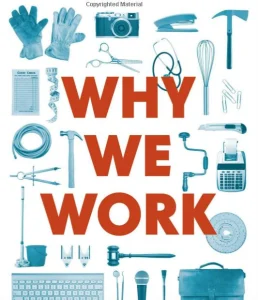This summer, the White House organized a formidable sustainability effort in the private sector. The initiative led some of the biggest U.S. companies, including Walmart, Bank of America, and Google, to collectively invest $140 billion to fight climate change. As Time reports. “The announcement also suggests an increased acceptance in the business community to the realities of climate change.”
 In addition to supporting the common good, sustainability efforts add meaning in the workplace, motivating employees to innovate and engage. In his new book Why We Work, Swarthmore professor Barry Schwartz sheds light on the unexpected rewards of strong values, which can increase meaning on the job. No clearer is this connection than in the example of Ray Anderson and Interface carpeting. After an epiphany about the effects of petroleum-reliant carpet manufacturing, Anderson, the now late CEO of Interface, rededicated his efforts to minimizing his company’s environmental footprint. Despite the assumption that new processes would bring high costs, Anderson forged onward, ready to “sacrifice the bottom line.”
In addition to supporting the common good, sustainability efforts add meaning in the workplace, motivating employees to innovate and engage. In his new book Why We Work, Swarthmore professor Barry Schwartz sheds light on the unexpected rewards of strong values, which can increase meaning on the job. No clearer is this connection than in the example of Ray Anderson and Interface carpeting. After an epiphany about the effects of petroleum-reliant carpet manufacturing, Anderson, the now late CEO of Interface, rededicated his efforts to minimizing his company’s environmental footprint. Despite the assumption that new processes would bring high costs, Anderson forged onward, ready to “sacrifice the bottom line.”
According to Schwartz, Anderson found that “Interface employees were so motivated by the opportunity to work for the common good, and challenged by the need to find innovative modifications of the production process, that their work became much more effective and efficient.” When employees felt connected to a larger social movement, they worked to greater results. As Schwartz summarizes, “Sustainability has inspired and empowered associates with a committed sense of higher purpose.” As more companies reassess their supply chains and carbon footprint, companies may benefit from positive internal changes too.
